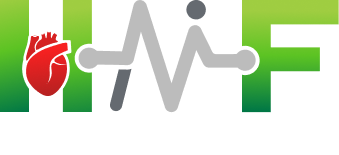Modern Stressors Driving Cardiac Risks: How to Protect Your Heart in a Fast-Paced World

In today’s hyper-connected, fast-paced world, stress has become an ever-present part of our lives, and our hearts are paying the price. From demanding workplaces to the never-ending stream of notifications, modern stressors are putting our cardiac health at serious risk. But with the right tools and awareness, we can turn the tide and protect our hearts before it’s too late.
Workplace Stress: The Silent Strain on Your Heart
The relentless demands of the modern workplace are taking a toll on our bodies. Long hours, tight deadlines, and sedentary routines trigger an increase in stress hormones like cortisol. Elevated cortisol levels lead to higher blood pressure, creating strain on the heart that, if left unchecked, can increase the risk of heart failure.
Technological Overload: Constant Connection, Constant Pressure
Our constant connection to technology may keep us informed and efficient, but it also disrupts our sleep and mental well-being. Endless notifications, emails, and screen time result in poor sleep quality, which studies show can directly affect heart function. Insomnia and sleep deprivation are linked to increased risk of heart failure, making it critical to manage how we interact with our devices.
Economic Pressures: Financial Stress, Physical Toll
Financial worries—from job insecurity to mounting debt—impact our physical health, with low-income populations particularly at risk. Economic anxiety increases the likelihood of high blood pressure and heart disease, with stress driving up cardiac risks for millions globally.
Global Uncertainty: The Weight of a World in Crisis
Whether it’s the ongoing pandemic, climate change, or geopolitical instability, global uncertainty is fueling chronic stress for many. This constant state of worry pushes the heart into overdrive, leading to conditions like hypertension and increased cardiovascular risks.
How Stress Impacts the Heart: The Hidden Dangers
When your body is in a constant state of stress, the “fight-or-flight” response remains active, keeping heart rates and blood pressure high. Over time, this ongoing strain leads to:
- Hypertension: One of the major risk factors for heart failure.
- Inflammation: Chronic stress triggers inflammation that damages blood vessels and the heart.
- Arrhythmias: Stress can cause irregular heartbeats, increasing the risk of cardiac arrest.
Real-Life Stories of Stress-Driven Heart Failure
The 45-Year-Old Executive
A successful executive ignored his fatigue and dizziness, thinking it was just work stress. A HAIF test revealed his heart failure risk, and after making lifestyle changes, he regained control of his health—likely saving his life.
The Young Mother
A 35-year-old mother juggling work, family, and finances started experiencing shortness of breath. HAIF detected early-stage heart failure, enabling timely treatment that restored her health and energy.
The HAIF Solution: Early Detection for Stress-Driven Cardiac Risks
HAIF’s HFP offers a powerful way to combat the hidden risks of stress-related heart conditions. By identifying cardiac changes before symptoms escalate, HAIF gives patients the power to act early.
- Early Detection: HAIF identifies risks before they become life-threatening.
- Affordable and Accessible: Monitoring is easy and cost-effective with HAIF, making it a solution for anyone, anywhere.
- Empowerment: With actionable insights, patients can address stressors and take control of their heart health.
Managing Stress to Protect Your Heart: Tips for Prevention
You can’t eliminate stress, but you can manage it in a way that protects your heart. Here are a few practical tips:
- Practice mindfulness through meditation, yoga, or deep breathing exercises.
- Improve your sleep habits by reducing screen time and creating a calming bedtime routine.
- Seek support through therapy, counseling, or stress management programs.
Proactive Health Monitoring: Keep Your Heart in Check with HAIF
Don’t wait for symptoms to appear. Incorporating HAIF’s HFP into your routine allows for regular check-ins on your cardiac health, giving you peace of mind and the ability to act before it’s too late.
Conclusion: Take Control of Stress and Protect Your Heart
Stress may be an unavoidable part of modern life, but its impact on your heart doesn’t have to be. By recognizing the risks and using powerful tools like HAIF, you can take control of your heart health and prevent heart failure before it starts. Let’s work together to beat stress and protect your heart—starting today.
Visit HAIF.tech to learn how to safeguard your heart against modern stress.
